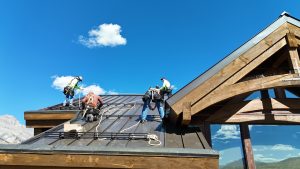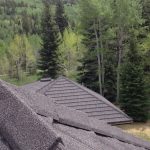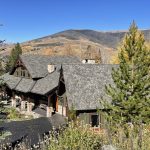Choosing the New Roof for Colorado: Best Systems for Snow and Hail
Selecting a new roof for your Colorado home can feel challenging, given the region’s extreme and unpredictable weather. From heavy snow to sudden hailstorms, the best roofing material should be durable, resilient, and able to handle intense UV exposure and fluctuating temperatures.
Understanding Colorado’s Unique Climate Challenges

default
Colorado’s weather demands roofing that can withstand intense conditions. With regular snowfalls, roofs in higher elevations bear significant weight, while frequent hailstorms in certain Colorado locations threaten substantial damage. Freeze-thaw cycles create ice dams, increasing the risk of leaks. High-altitude UV exposure accelerates material degradation, making durability essential. This mix of snow, hail, and strong sun means that only the toughest roofing materials will endure.
Asphalt Shingles: Affordable and Practical
Asphalt shingles are a popular choice for Colorado homes due to their affordability and versatility. They come in various colors and styles to match architectural preferences and are generally easy to install, reducing labor costs. Many modern asphalt shingles have enhanced impact resistance, making them more suitable for regions prone to hail. While they aren’t the longest-lasting material, some treated asphalt shingles resist algae and UV damage, helping them withstand Colorado’s sunny conditions.
However, heavy snow, hail, and extreme temperature changes can wear down asphalt shingles more quickly, often requiring replacement in 10–15 years in Colorado. Despite this, their initial low cost and ease of installation make them a practical option for budget-conscious homeowners.
Metal Roofing: Strong, Durable, and Energy Efficient
Metal roofing is known for its exceptional durability, lasting over 50 years and performing well against Colorado’s harshest weather. Its smooth surface allows snow to slide off, reducing the likelihood of ice dams. Metal roofs are also highly resistant to hail and strong winds, making them an excellent choice for extreme climates.
Metal roofing’s reflective surface can reduce cooling costs during sunny summers, offering added energy efficiency. It’s also low-maintenance and resistant to cracking or shrinking, which is common in other materials exposed to frequent weather changes. Though the upfront cost is higher than asphalt shingles, the longevity and performance often justify the investment. Many metal roofs are also made from recycled materials, adding to their eco-friendliness.
Stone-Coated Steel: Aesthetic and Long-Lasting
Stone-coated steel roofing combines the durability of metal with the aesthetic appeal of traditional roofing materials like tile or shingles. This type of roofing is particularly well-suited for Colorado’s harsh weather conditions, offering exceptional resistance to both snow and hail. The stone coating adds an extra layer of protection against impact, reducing the likelihood of damage from hailstones. One of the notable features of stone-coated steel roofing is its ability to withstand high winds and severe weather events, providing a robust and reliable solution for homeowners.
Additionally, stone-coated steel roofs are lightweight compared to other heavy roofing materials, reducing the structural load on your home while still offering superior performance. These roofs are energy-efficient, with reflective surfaces that help regulate indoor temperatures, making them ideal for Colorado’s sunny climate. Available in a variety of styles and colors, stone-coated steel roofing allows homeowners to achieve the desired look without compromising on strength and durability. The long lifespan and low maintenance requirements further enhance its appeal, making it a valuable investment for those looking to protect their homes from Colorado’s unpredictable weather.
Synthetic Roofing Materials: Innovative and Resilient
Synthetic roofing options, designed to mimic natural materials like slate or wood, offer enhanced durability and impact resistance at a lighter weight, reducing structural stress. These materials handle snow, hail, and temperature extremes effectively, making them a strong choice for Colorado. They are also eco-friendly, incorporating recycled materials and often being recyclable themselves.
Synthetic roofing materials last around 30–50 years, balancing durability with sustainability. Though they’re relatively new, synthetic roofs are gaining popularity for their resilience and sustainability.
Choosing the Right Roof for Your Home
To select the best roof for Colorado weather, consider your budget, home style, and long-term needs. By weighing the benefits of each option, you can find a roofing material that meets Colorado’s demanding climate, enhances your home’s appeal, and supports long-term value.




You must be logged in to post a comment.